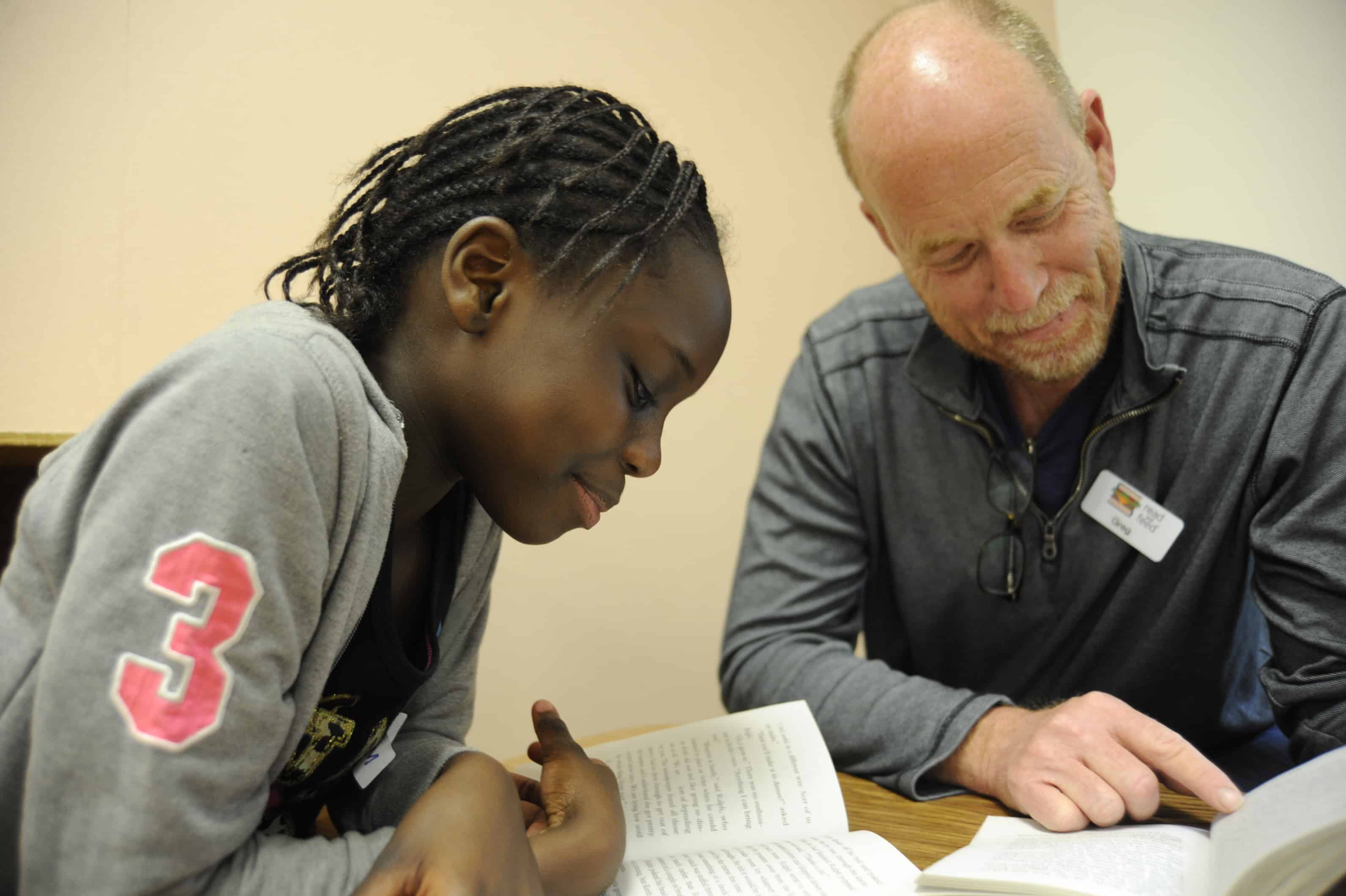I’m not good at measuring things. I don’t care that much to quantify or compile data, although I understand — completely — how critical it is.
I like my evidence to be experiential, tactile, things you can feel and know in your heart.
That’s why I volunteer with Read and Feed. Each school week, for the past year and a half, I’ve sat down with kids from kindergarten to fifth grade, and helped them read. I guide them through books, helping them learn new words and concepts.
I talk with them, listening to stories about their day, asking questions, sometimes serious, often silly.
Kids need adults in their lives who aren’t teachers or parents. When you spend time with a child, reading and laughing, it makes an impression on her, perhaps quantifiable, but probably not. I measure success by smiles, hugs, and laughter. And then, I measure the reading success over time by the fluidity of effort, by the way a kid slides over a multisyllabic word like “imagination” and pronounces it exactly right. I like that the kid knows she’s just impressed me, a grin growing as she reads on.
Read and Feed recognizes a fact about learning in Wake County: A large number of students come to school hungry. The research is clear on this critical point: Kids don’t learn as well when they haven’t had enough to eat.
So, at every Read and Feed tutoring site, a meal is served. Fixed sites and three mobile classrooms serve 600 children. The modified RVs go to where the need is, from a mobile home park on the edges of North Raleigh to church or school parking lots across Wake County. In total, 425 volunteer tutors take at least an hour a week sitting with children, listening, reading and helping.
By the end of this year, Read and Feed will have served more than 12,500 meals.
I volunteer at a fixed site in Raleigh — a classroom at Conn Elementary School where more than 20 kids come after school. Each Wednesday, I spend an hour with Mariam and Michael, reading books, playing hangman, and writing little short stories together. I learn about their school lives. I ask about their families. I tell them about science books I’ve read or we discuss current events, with Michael often letting me in on a new fact he’s learned about the universe. Mariam, her voice all-knowing, is never shy to tell me her quite concrete opinions on the goings-on at the White House.
We once wrote a story about Michelle Obama saving the three of us from monsters at the top of a mountain.
Mariam always picks more than one word at hangman. Michael likes to pick words right in front of him, from books nearby or even a nametag.
We’ve read thousands and thousands of words together.
I’ll say goodbye to them this week as the school year winds down and Read and Feed sets up a handful of summer programs. There’s a good chance I’ll see them again next year, with both coming up on their last year of elementary school.
When I see Mariam smile or Michael’s eyes light up at the beginning of each tutoring session, I’ve got all the evidence I need that the program is working. When Mariam asks about my daughter, or wants to know why I got a haircut because she liked my longer hair better, I know Mariam’s made a connection to the world that gives her a better chance at success. And, as I hear them both read, the improvement over the school year is quite tangible. I know their teachers have measured it, quantified it. That’s satisfying.
They both know more words, more concepts, and have a better grasp that books — books — are gates to new and different worlds.
Read and Feed always ends the year with a fundraiser breakfast, one designed to educate community members about our mission. You can find out more here, or even donate here.

